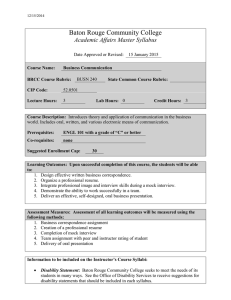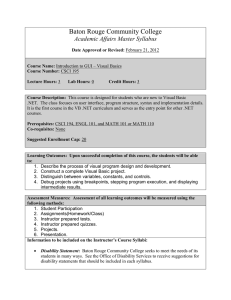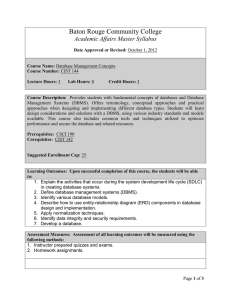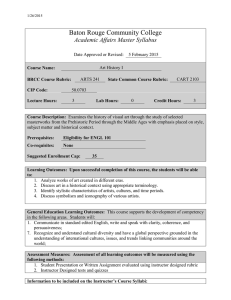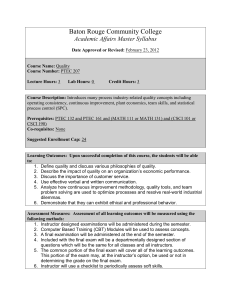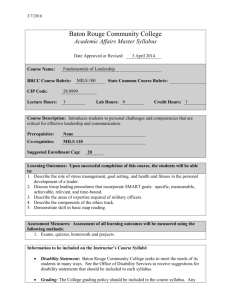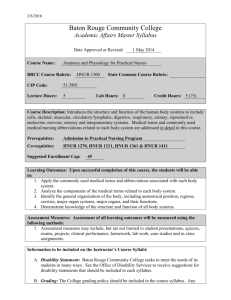PALG 121 - Baton Rouge Community College
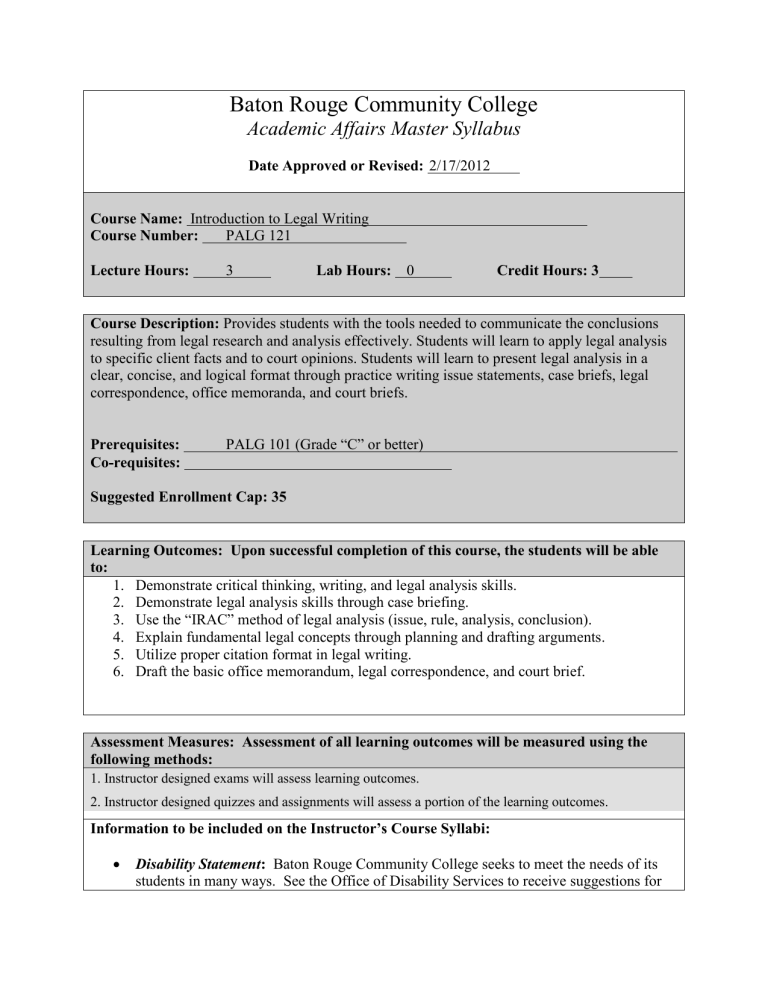
Baton Rouge Community College
Academic Affairs Master Syllabus
Date Approved or Revised: 2/17/2012
Course Name: Introduction to Legal Writing
Course Number: PALG 121
Lecture Hours: 3 Lab Hours: 0 Credit Hours: 3
Course Description: Provides students with the tools needed to communicate the conclusions resulting from legal research and analysis effectively. Students will learn to apply legal analysis to specific client facts and to court opinions. Students will learn to present legal analysis in a clear, concise, and logical format through practice writing issue statements, case briefs, legal correspondence, office memoranda, and court briefs.
Prerequisites: PALG 101 (Grade “C” or better)
Co-requisites:
Suggested Enrollment Cap: 35
Learning Outcomes: Upon successful completion of this course, the students will be able to:
1.
Demonstrate critical thinking, writing, and legal analysis skills.
2.
Demonstrate legal analysis skills through case briefing.
3.
Use the “IRAC” method of legal analysis (issue, rule, analysis, conclusion).
4.
Explain fundamental legal concepts through planning and drafting arguments.
5.
Utilize proper citation format in legal writing.
6.
Draft the basic office memorandum, legal correspondence, and court brief.
Assessment Measures: Assessment of all learning outcomes will be measured using the following methods:
1. Instructor designed exams will assess learning outcomes.
2. Instructor designed quizzes and assignments will assess a portion of the learning outcomes.
Information to be included on the Instructor’s Course Syllabi:
Disability Statement: Baton Rouge Community College seeks to meet the needs of its students in many ways. See the Office of Disability Services to receive suggestions for
disability statements that should be included in each syllabus.
Grading: The College grading policy should be included in the course syllabus. Any special practices should also go here. This should include the instructor’s and/or the department’s policy for make-up work. For example in a speech course, “Speeches not given on due date will receive no grade higher than a sixty” or “Make-up work will not be accepted after the last day of class.”
Attendance Policy: Include the overall attendance policy of the college. Instructors may want to add additional information in individual syllabi to meet the needs of their courses.
General Policies:
Instructors’ policy on the use of things such as beepers and cell phones and/or hand held programmable calculators should be covered in this section.
Cheating and Plagiarism: This must be included in all syllabi and should include the penalties for incidents in a given class. Students should have a clear idea of what constitutes cheating in a given course.
Safety Concerns:
In some programs this may be a major issue. For example, “No student will be allowed in the safety lab without safety glasses.” General statements such as, “Items that may be harmful to one’s self or others should not be brought to class.”
Library/ Learning Resources: Since the development of the total person is part of our mission, assignments in the library and/or the Learning Resources Center should be included to assist students in enhancing skills and in using resources. Students should be encouraged to use the library for reading enjoyment as part of lifelong learning.
Expanded Course Outline:
Expanded Course Outline:
I.
Definition and Terminology
II.
Introduction to Case Analysis a.
Opinions b.
Mandatory vs. Persuasive Authority c.
“IRAC” method of analysis
III.
Legal Analysis a.
Key Facts b.
Issue Identification c.
Statutory Analysis d.
Case Law Analysis
IV.
The Writing Process for Effective Legal Writing a.
Format, Style, Mechanics b.
Citation
V.
Forms of Legal Writing a.
Office Legal Memoranda b.
Legal Correspondence c.
Court Brief
